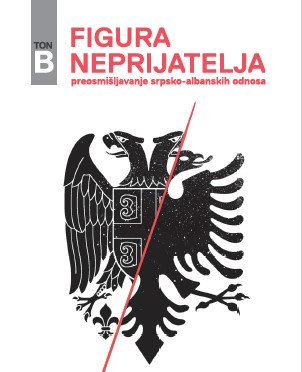Simbolika nemoći: intelektualci i srpsko-albanski odnosi u postjugoslovenskom kontekstu
The Symbolism of Powerlessness: Intellectuals and Serbian-Albanian Relations in the post-Yugoslav Context
Author(s): Gazela Pudar Draško
Subject(s): Diplomatic history, Political history, International relations/trade, Politics and communication, Nationalism Studies, Transformation Period (1990 - 2010), Present Times (2010 - today), Inter-Ethnic Relations, Peace and Conflict Studies
Published by: KPZ Beton
Keywords: Intellectuals; figure of the Other; discursive strategies; Kosovo; nation;
Summary/Abstract: This article explores the attitudes of Serbian intellectuals in relation to Kosovo as a geographic area that gain special status and importance by being infused by symbolic meanings. The article aims at identifying and operationalizing discursive strategies through which the intellectuals use the notion of Kosovo and/or the metaphor "enemy/ the “Other“ figure“. The analysis of statements and writings of the intellectuals focuses on three seminal events of the post-Yugoslav, i.e. post-Milosević’s period, which marked the process of Kosovo independence. The events in question have are the “Kosovo pogrom“ from 2004, Kosovo declaration of independence in 2008 and the signing of the Brussels Agreement in 2013. The article should testify about the dilemmas (or the lack of thereof) among the intellectuals “by fate“ interested or provoked to publicly express their views on “the Kosovo question“ – does by being intellectual one is indebted above all to be loyal to his/her nation and to fight for its “rights“ through intellectual means, or actually to protest against the national and other euphoria and to promote universal values?
Book: FIGURA NEPRIJATELJA: PREOSMIŠLJAVANJE SRPSKO-ALBANSKIH ODNOSA
- Page Range: 337-355
- Page Count: 19
- Publication Year: 2015
- Language: Serbian
- Content File-PDF

